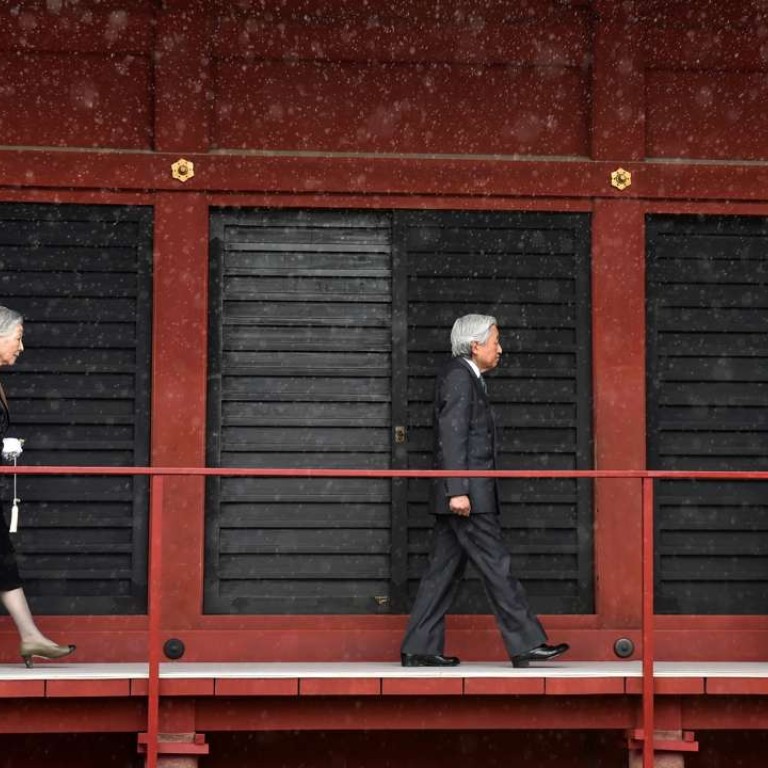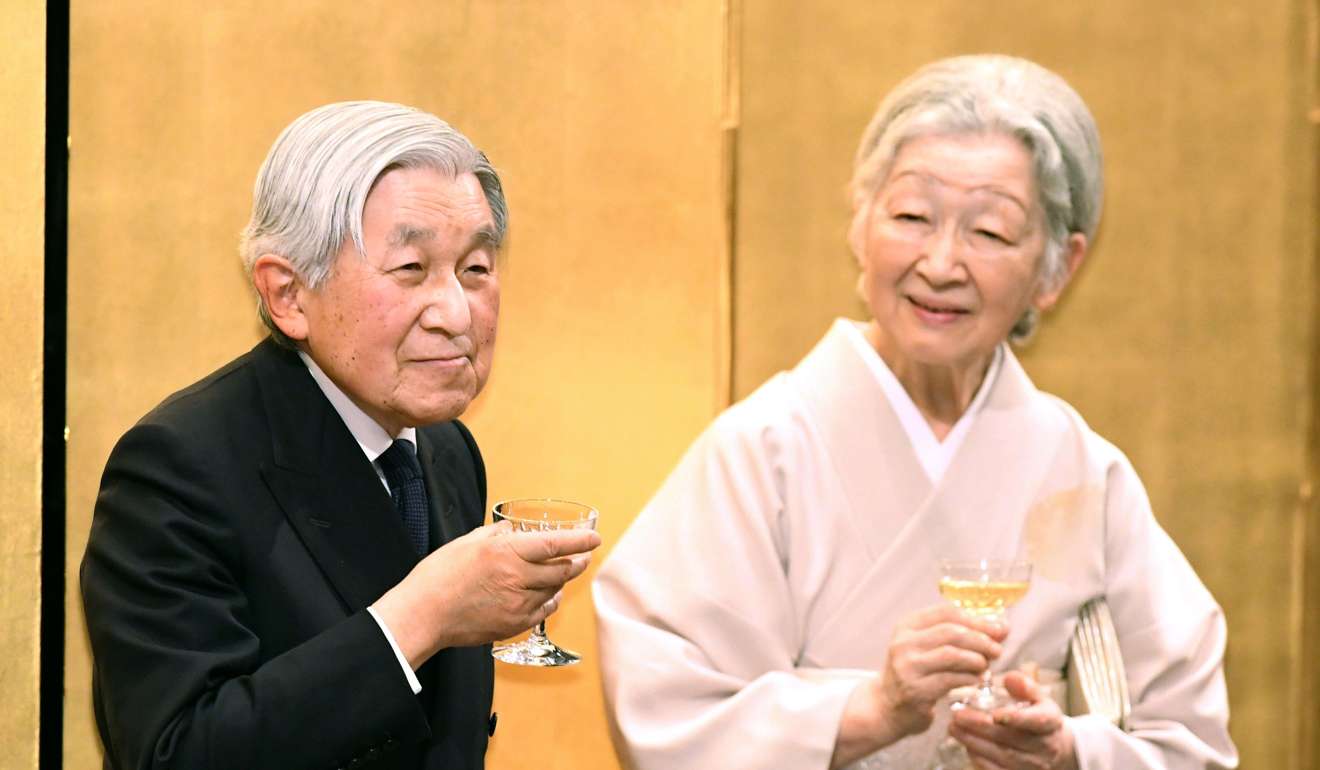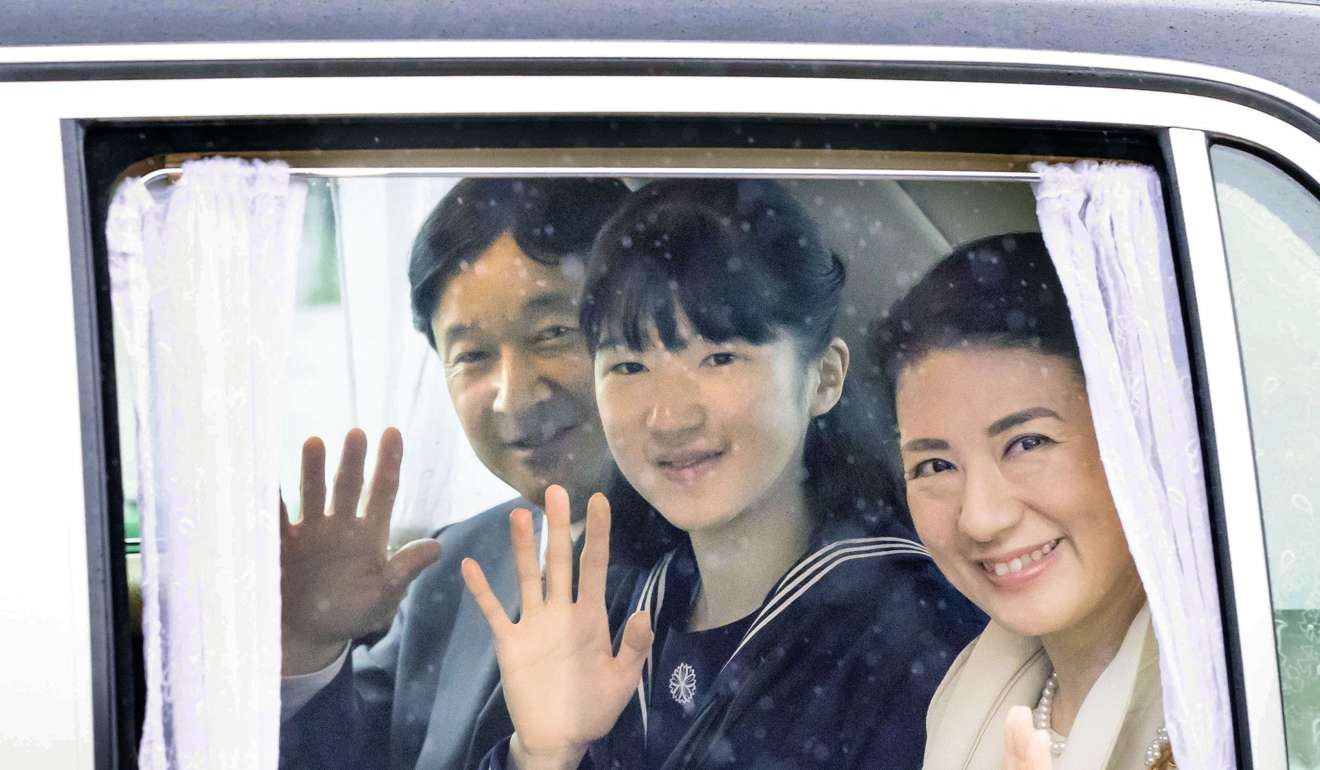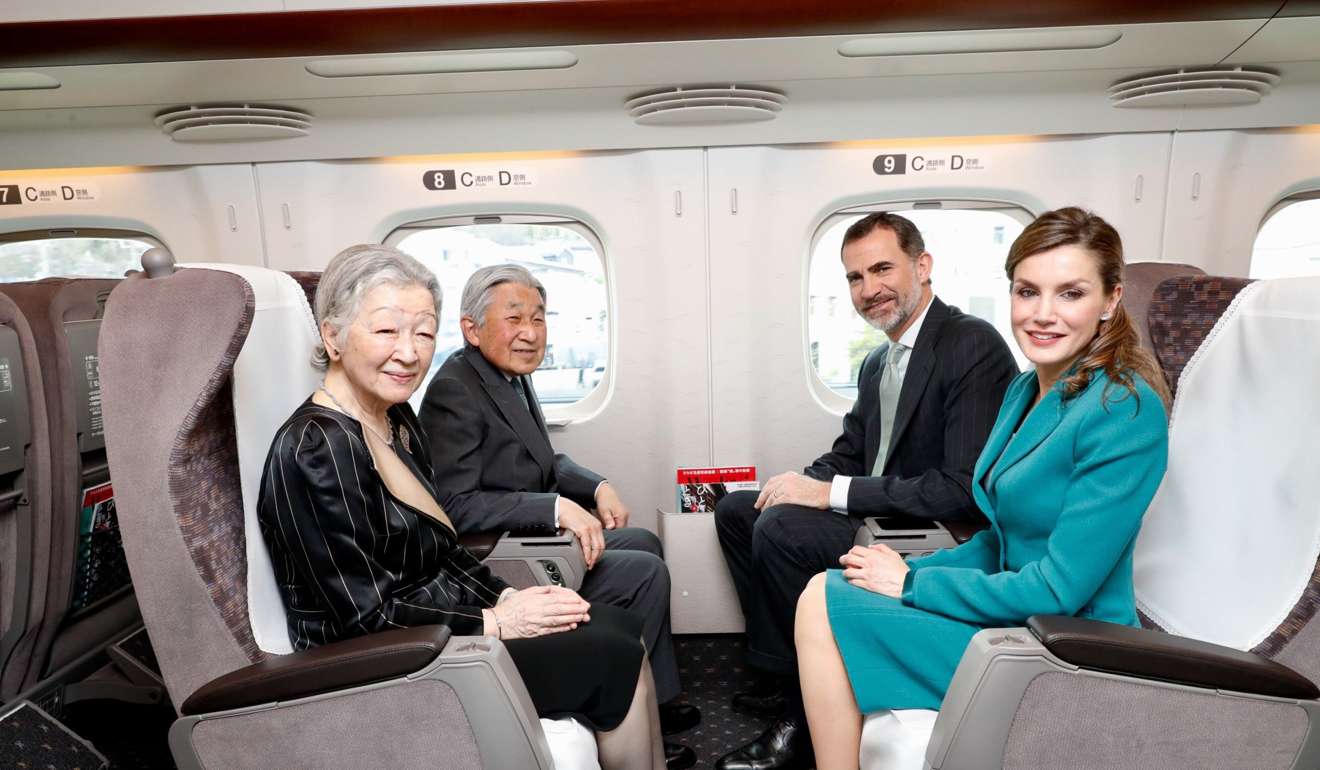
Japan confronts reality of world without Emperor Akihito: not enough royals to take his place
Prime Minister Shinzo Abe’s government has been mulling legal changes following the emperor’s rare video message last summer indicating his desire to step down due to his advanced age
A panel set up by the Japanese government to debate whether Emperor Akihito should be permitted to abdicate has gone beyond its remit by calling for urgent discussions on how to solve the problem of the nation’s shrinking Imperial family.
But the draft, obtained by the conservative Yomiuri Shimbun newspaper, also calls for the government and the Japanese public to consider ways to “counter a decrease in the number of Imperial family members,” the paper stated.
The matter “is becoming an issue that can no longer be delayed,” the paper quoted the panel as saying.

The panel has offered no specifics of what should be open for consideration, but one solution would be to permit a woman to assume the throne. Alternatively, laws could be introduced to reverse the decision taken in 1945 by the occupying Allied forces to effectively lop of the branches of the imperial tree to leave a single imperial line.
Conservatives initially opposed the emperor’s request to stand down, on the grounds that it would reduce the standing of the imperial system and create a dangerous precedent for future generations of the world’s longest-lived royal household, but they appear to accept they have been defeated.
They remain, however, vehemently opposed to a woman on the throne, said Jeff Kingston, director of Asian Studies at the Japan campus of Temple University, and will only accept tinkering with the imperial lineage “if it is on their terms,” he added.

“An empress is anathema to conservatives here, even though a solid majority of Japanese say they are fine with the idea of a woman on the throne,” Kingston said.
They are likely to be more open to the idea of the reinstatement of the extended imperial family - the dukes, earls and barons of pre-war Japan - although younger generations who have only ever known the existing form of the Imperial family are likely to resist the suggestion.

“The fact that the panel has recommended that the issue of expanding those eligible to take over the throne is heading in the right direction, but the current conservative leadership seems to feel that the situation is okay and I doubt we will see any meaningful debate.”
Public opinion polls suggest that more than 80 per cent of the Japanese public feel that the emperor, who has undergone treatment for cancer in recent years and is visibly slowing down, should be able to abdicate in favour of Prince Naruhito.
And while conservatives are strong proponents of an emperor system, they are not huge fans of Emperor Akihito.
When, for example, Prime Minister Shinzo Abe used the 70th anniversary of the end of the second world war to declare that modern-day Japan had been built on the sacrifices of the millions who had died in the conflict, the emperor’s riposte the following day - carefully worded to avoid being seen to be interfering with democratically elected politicians - was to aver that the nation’s prosperity was a testament to those who had rebuilt it after 1945.
Additional reporting by Kyodo

